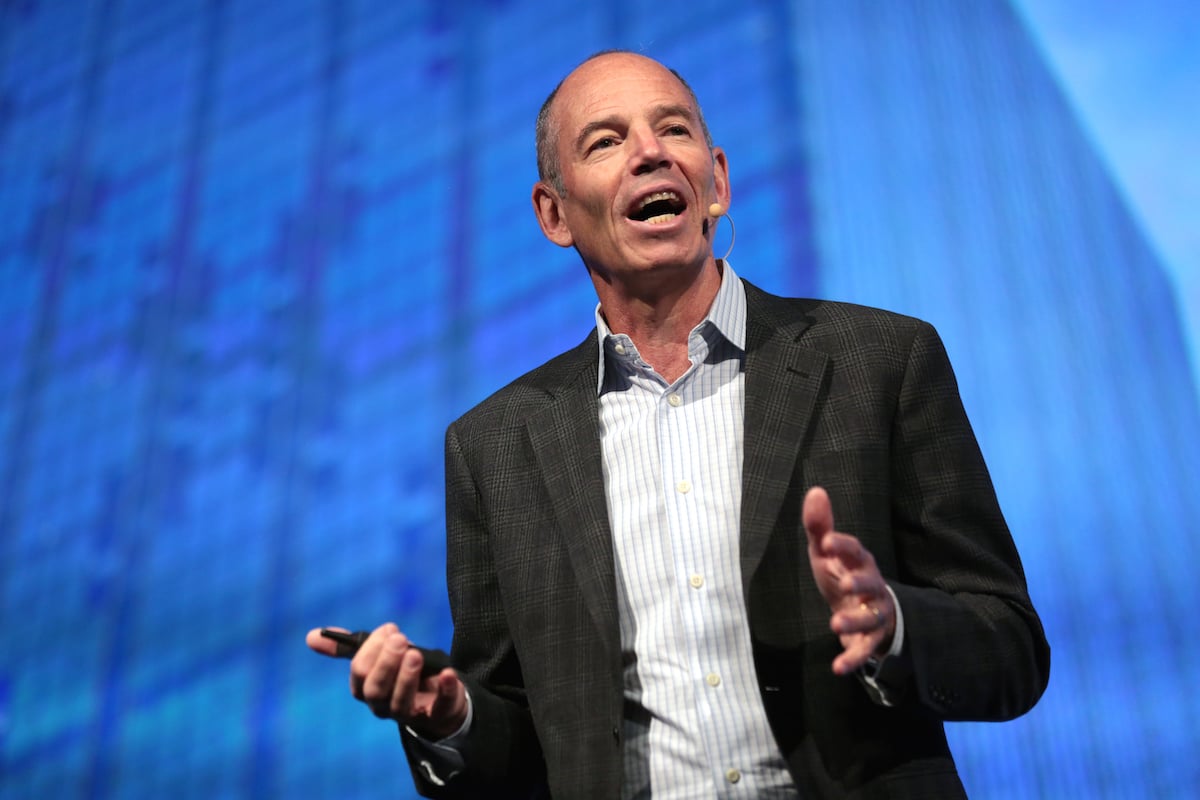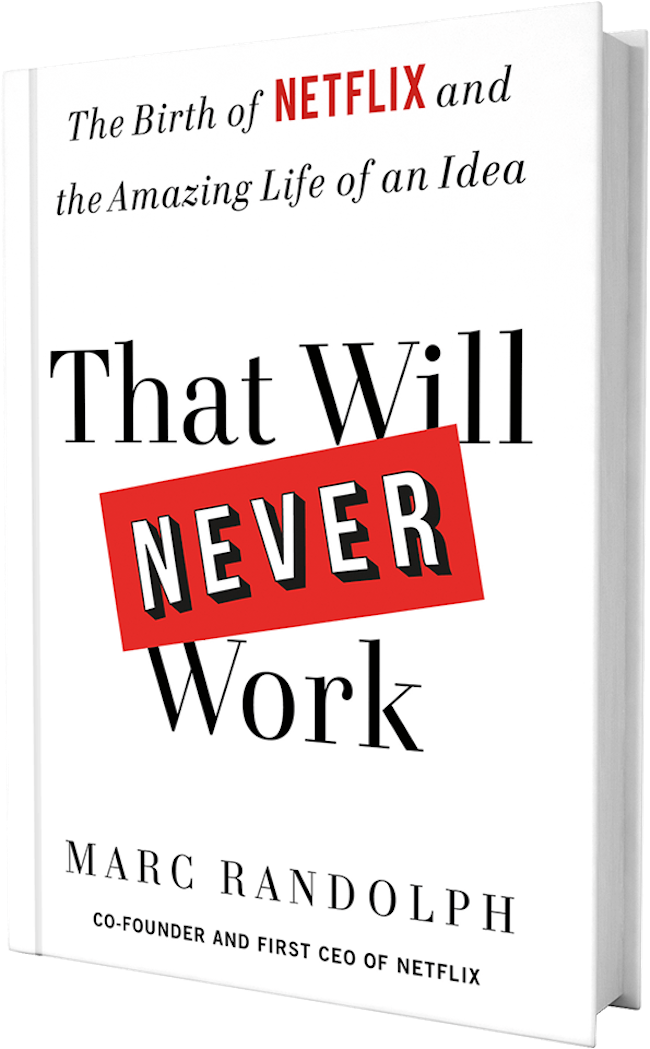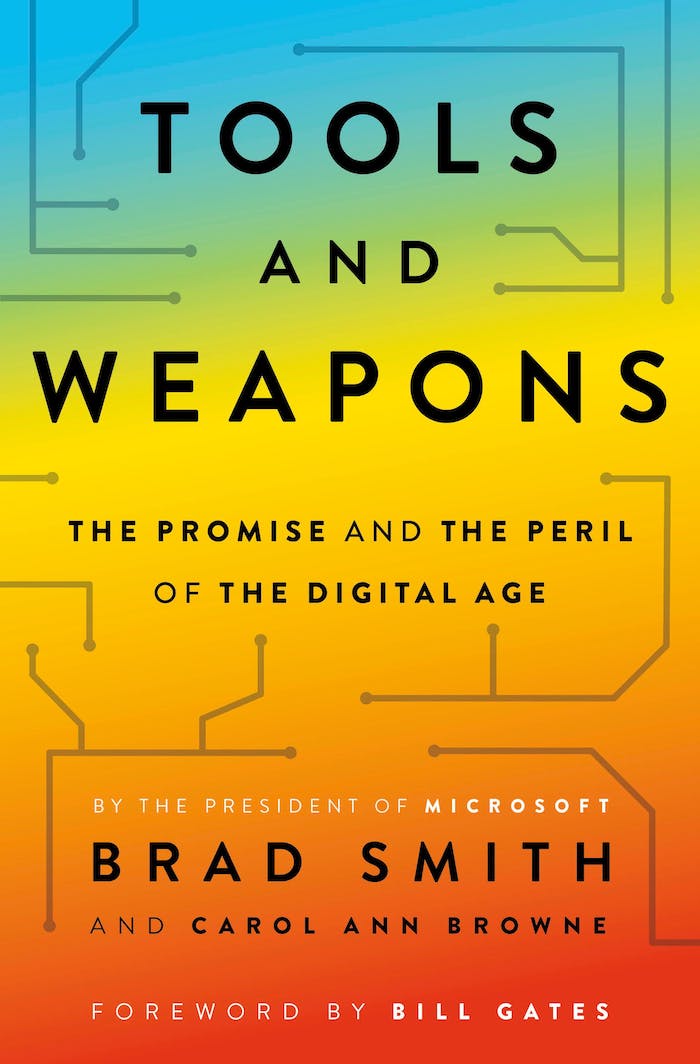For many aspiring entrepreneurs and tycoons, learning how the leading businesspeople of our time turned an idea into a conglomerate is a rite of passage.
Or maybe it’s just an insatiable curiosity for how the other half lives, how they pursue dreams that become reality and how that reality changes their lives, often with enormous wealth – or at least corporate notoriety.
Famous, or perhaps more accurately, hugely successful businesspeople turn to writing a book for a number of reasons, not least of which is money – of course. But many also share a desire to spread their accumulated wisdom and give beginners in business a leg-up to get their bright idea or irresistible service off the ground and create their own ticket-to-ride to business success.
Three books on the travails of business have just been published, from authors who know what they’re talking about – because they lived the business challenge and came out the other side.

Marc Randolph was the Co-Founder and first CEO of Netflix, who has put down on paper the story of how Netflix was conceived, how it grew to disrupt an established industry, and very likely will be a force of nature in the world of entertainment. His book That Will Never Work outlines the birth of Netflix, but also convinces would-be entrepreneurs to believe in themselves and have a go.

Kim Scott was a senior executive at Apple and Google, and a CEO coach at Dropbox before writing about her experiences and insights into leadership, and building lasting work relationships. Her book, Radical Candor, was a bestseller on its publication in 2017, and a revised edition has now been published.

Brad Smith is President of Microsoft. He has written, with Carol Ann Browne, Tools and Weapons to point out the responsibility of major corporations to address any problems that their operations, technology or workforce might cause. In his case, Microsoft’s ubiquitous technology bears enormous responsibility for cybersecurity and online disruption around the world.
Here are 5 brief takeaways from each book to give you a snapshot of their contents.

That Will Never Work – Marc Randolph
Release date: 24 September 2019, Hachette Australia
- When it comes to making your dream a reality, one of the most powerful weapons at your disposal is dogged, bull-headed insistence. It pays to be the person who won’t take no for an answer, since in business, no doesn’t always mean no.
- As you get older, if you’re at all self-aware, you learn two important things about yourself: what you like, and what you’re good at. Anyone who gets to spend his day doing both of those things is a lucky man.
- Every start-up has hundreds of things going wrong at the same time, all clamouring for attention. I have a sense of which two or three issues are the critical ones, even if they are not the ones screaming the loudest. But they are the ones that, if you fix them, then all the rest will take care of itself.
- Sometimes you have to step back from your dream – especially when you think you’ve made it real.
- Rules for success:
- Do at least 10% more than you are asked.
- Never, ever, to anybody, present as fact opinions on things you don’t know. Take great care and discipline.
- Be courteous and considerate always – up and down.
- Don’t knock, don’t complain – stick to constructive, serious criticism.
- Don’t be afraid to make decisions when you have the facts on which to make them.
- Quantify where possible.
- Be open-minded but sceptical.
- Be prompt.

Radical Candor – Kim Scott (2nd Edition)
Release date: 17 October 2019, Pan Books
- ‘Obnoxious Aggression’ – Most people prefer the challenging “jerk” to the boss whose “niceness” gets in the way of candour. I have seen that it was kinder in the long run to be direct, even if articulating my criticism caused some momentary upset.
- ‘Ruinous Empathy’ is responsible for the vast majority of management mistakes I’ve seen in my career. Most people want to avoid creating tension or discomfort at work. Bosses rarely intend to ruin an employee’s chance of success or to handicap the entire team by letting poor performance slide. And yet that is often the net result of Ruinous Empathy.
- In order to build a great team, you need to understand how each person’s job fits into their life goals. You need to know each person who reports directly to you, to have real, human relationships.
- Insisting that people have passion for their job can place unnecessary pressure on both boss and employee.
- The decider should get facts, not recommendations. When you are the decider, it’s really important to go to the source of the facts. This is especially true when you are a “manager of managers”. You don’t want the facts to come to you through layers of management.

Tools and Weapons – Brad Smith
Release date: 10 September 2019, Hodder & Stoughton UK
- Today, cyberspace is no longer some peripheral dimension. It increasingly has become the place where people organise themselves and define what happens in the world.
- The pressure to put more data centres in more countries is giving rise to what rapidly is becoming one of the world’s most important human rights issues. With everyone’s personal information stored in the cloud, an authoritarian regime bent on broad surveillance can unleash draconian demands to monitor not only what people are communicating, but even what they’re reading and watching online. And armed with this knowledge, governments can prosecute, persecute, or even execute those individuals they consider threats.
- Regarding cyberthreats: Every organisation has at least one employee who will click on anything.
- Repeatedly over time, technology has made the world a smaller place, but people are less connected with those living next door or under the same roof. This also creates new challenges for democracy. Spending more time online, sometimes with complete strangers, has made people more susceptible to disinformation campaigns that play to their likes, desires and, sometimes, their prejudices, with real-world consequences.
- The Fourth Industrial Revolution is defined by digital transformation. Every company in part is becoming a tech company. The same is true for government and not-for-profit groups. As a result, the people side of technology is becoming important for every slice of the economy … Employers need to develop a workforce that reflects and understands the diversity of the customers and citizens they serve.
Read more about the favourite books of the greatest business minds here







